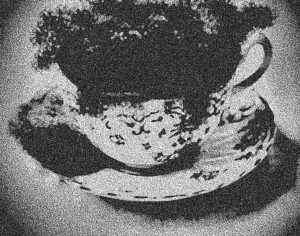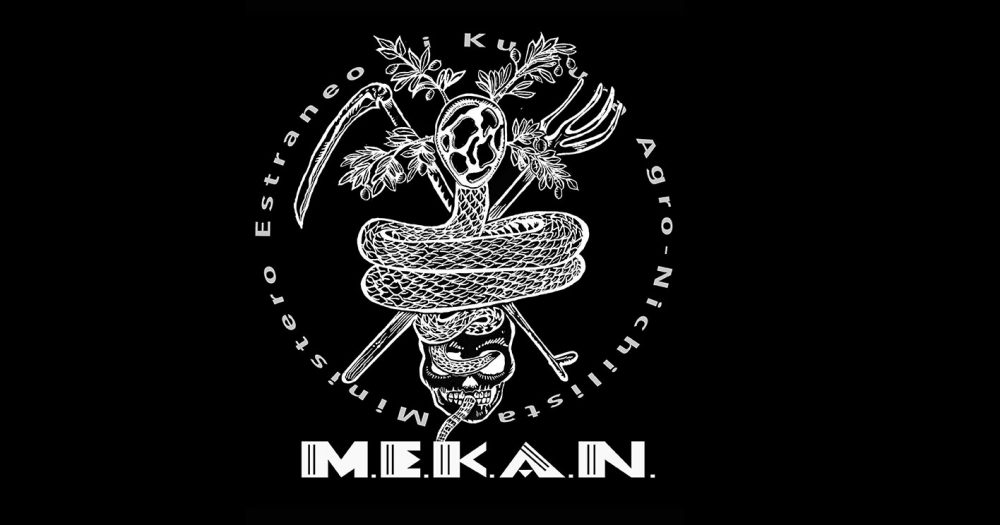 > It’s rather sad, but even academics[1] nowadays talk about “saving anarchy from anarchism”. I tend to agree. The thing that in the Western world we call “anarchism” has become integrated and integrative, in the sense that every time we act under the label “anarchist” we seem to reproduce some canonical mode of perceiving, desiring and doing. Which is anything but anarchy.
> It’s rather sad, but even academics[1] nowadays talk about “saving anarchy from anarchism”. I tend to agree. The thing that in the Western world we call “anarchism” has become integrated and integrative, in the sense that every time we act under the label “anarchist” we seem to reproduce some canonical mode of perceiving, desiring and doing. Which is anything but anarchy.
> Anarchy – as some of these academics also noticed – is the ruin of both pillars of order: of the will to command, or rule forms of life. And of the will to decide what is the principle, or origin, of all forms of life and, often, to impose it on all. The first one is clear; the second one possibly less so. What does it mean to say that anarchy is a pulsation towards the shattering of the mythical origins and principles of life on which order is founded?
> Ideology, when successfully turning into arché or nomos, imposes “self-evident fact as self-evident fact (without in the least seeming to, since they are ‘self-evident’) which we cannot not recognise and before which we have the inevitable and eminently natural reaction of exclaiming (aloud or in the silence of self-consciousness): “That’s obvious! That’s right! That’s true!” (Althusser[2]).
> The only pulsation in the modern West that I am interested in is that towards the destitution of a certain historical a priori that has consolidated as self-evidence, common sense and naturalness. All modern political identities and dispositifs of power, from leftism to fascism, from liberalism to nationalism, from patriarchy to humanism and everything in between, repudiate this anomic pulsation. They obsessively invest in nomothetic onto-epistemological and ethical principles and canonically preserve their myths of origin. All are fantasies of fullness (completeness, satisfaction, the end of anxiety, etc.), a fullness lost and to be found once again in the future, if we adopt the correct worldview. Their stories – the Aryan myth, the myth of the contract with the State, the myth of the original division of labour, the myth of natural sex/gender, the myth of Rome or the Gauls, the myth of European civilisation and of the primitivism of the rest of the world, the myth of human nature and rationality, the myth of the free and unique individual, the myth of natural laws, the myth of class conflict, the myth of the revolution and so on – serve as, allegedly non-ideological (“objective, true, etc.”), self-validation.
> Western-European anarchism, much less interested in the second meaning of anarchy – principle, origin – than in the first one and having inherited from its founding fathers understandings of power and subjectivity that favour a strive towards establishing this or that “anarchist” arché, seems at times unable to decide between a centripetal force that aims to coagulate around a core (of power/knowledge, of practice, of imagination etc.) and a centrifugal one that aims towards undoing certitudes as soon as they form. Therefore, it often aims to discipline pulsations towards disintegration (desertion, escape, absenteeism, cynicism, indifference, laziness, the refusal to be interpellated, absurdity, evilness, immorality, dissipation, nonsense, sarcasm, comedy, tribalism, isolationism, seriously fooling around, etc.) into a sense of duty to serve its main idol: the revolution, insurrection, struggle, etc.
2.
> Anarchy is the effort to undo self-evidence. It is a centrifugal force that sabotages the homeostatic drive of normality, the obviousness of perception, identities and affects, the safety of certainties and units, the will to purity and certainty that has been mummifying this world. It could splinter reality into an overload of forms of life.
> It could refuse dogmatic definitions of “insubordination” and “submission”. To be ungovernable, to resist authority and integration, cannot be reduced to the narrow set of behaviours known in the radical circles as “the struggle”.
> It could refuse the patterns of doing and enjoying that we have learned to love within various disciplinary institutions (the family, the school, the Spectacle, the radical collective) and never hide its compulsions behind grand, messianic declamations.
> Anarchy, being a pulsation towards disintegration, could proliferate in whatever directions seem exciting at the moment, without fear of incoherence, discontinuity or contradiction.
3.
I want to sever within myself the connection between enjoyment and suffering (martyrdom, the passion of the saints) that haunts radical milieux. Once enjoyment becomes melodramatic, tragic or heroic, it has been fully domesticated. All integrative ideologies – bourgeois humanism, colonialism, nationalism, fascism, religion, patriarchy – are fuelled by myths and genealogies of suffering and venerate pantheons of saint martyrs. If we are suffering more intensely than the respectable citizen, to me this isn’t a sign that we are more lucid, authentic and virtuous, but a sign that we have nothing exciting to offer anyone besides, of course, the passion for self-flagellation that Christians have been addicted to for the past two thousand years or so – and there’s no competing with them in that field of ecstasy. I do not understand how one used to fuelling their form of life or libidinal territories with genealogies of suffering might swiftly switch to a different libidinal economy and a new form of life when the need to build other worlds, worlds of experimentation, laughter, playfulness, frivolity, debauchery, whatever, will present itself.
> Even if I do, of necessity, live in it, the dominant reality is a hostile environment, not an ecosystem with which I aim to interact meaningfully. And since any given phallic order, bourgeois included, stages its worst nightmares, the fantasmatic principle of its undoing, in its various “cultural” productions, then I take as a good example those pop culture arch-villains for whom destroying the world is not interesting as a political cause or as a means to some pragmatic goal, but only because it promises to be loads of fun.
[1] Donatella de Cesare, for example, but there have been quite a few others in the past two-three decades. My unkind formulation “even academics” mocks the fact that academics who, whatever else they think that they are, are principally State and/or corporate bureaucrats, feel entitled to write about anarchism; but it also refers to the fact that academics, like all bureaucrats, are more keen on the preservation of the canon than on experimentation and almost always play it safe.
[2] I know, him of all people… My readings are clearly undiscerning and anything but anarchist.
